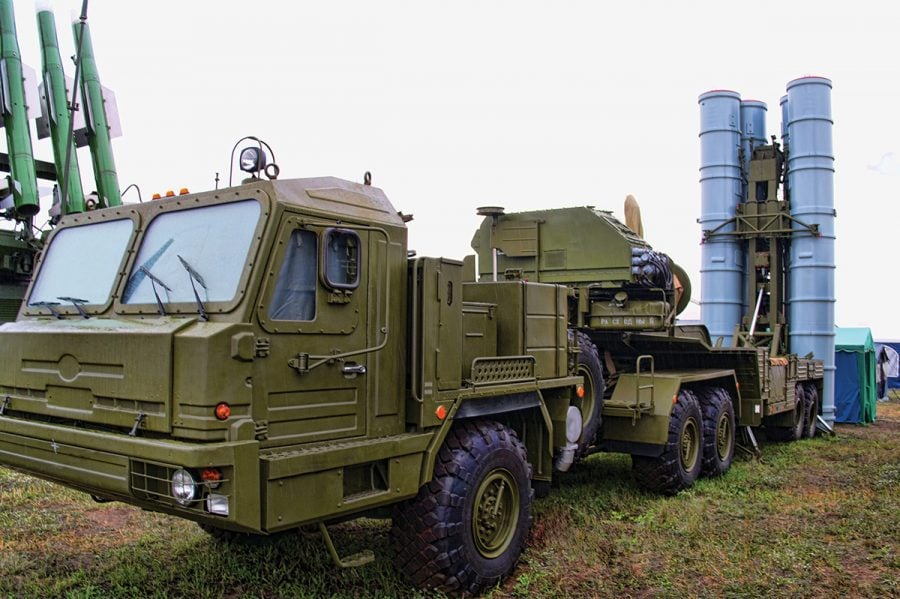Missiles delivered from Russia to Syria
The S-300 is a series of Russian long range surface-to-air missile systems produced by NPO Almaz. // Photo courtesy of Andrey Korchagin
On Sept. 28, the Russian government announced that the delivery of S-300 missiles to Syria had commenced. This development comes in the aftermath of a friendly-fire incident on Sept. 17, in which the Syrian militia shot down a Russian military plane, killing the fifteen people onboard.
The Russian Defense Ministry claims that the Syrian fire was directed at nearby Israeli F-16 fighter jets. In spite of aerial attacks over Syrian facilities prior to the incident, the Israeli government denies these claims.
“On the logistical level, I find it interesting that it was the Syrian government that actually shot down the plane. Everyone agrees that the Syrian government shot down a Russian plane by accident,” said Associate Professor of Political Science Maria Rosales. “In response, Russia is providing Syria with better weapons to shoot down planes, which I do not quite understand.”
As the United States is a strong ally of Israel, the transfer of Russian missiles to Syria continues to worsen relations and escalate tensions between the United States and Russia. The Middle East remains a complex area for international relations, and the supply of the latest Russian missiles indicates both opposition and ambiguity in the region.
“Russian supply of the S-300 missile system, because it indirectly enhances threats to Israel’s security, introduces still more uncertainty in the region and with the U.S. as the most important ally of Israel, also signals further opposition to U.S. international goals,” said Part-time lecturer of Political Science Elizabeth McNamara. “It signals a further strengthening of Assad’s power in Syria and may aid Iran as well.”
As the Syrian Civil War rages on and Syrian relations with Iran continue to grow, Israel-Syria ceasefire incidents near the border have threatened peace between the two nations. While Syrian President Bashar al-Assad ignores Israeli warnings against Iranian military presence in Syria, the Israeli government has urged Russia to facilitate the removal of Iranian troops from Syria. These issues, combined with the recent delivery of the S-300 anti-air system, display the worsening relations between Russian allies and Israel.
Assad maintains control of the nation, with appropriate support from Russia and Iran. However, the reign of Assad remains against American foreign policy interests. The actions of the Trump administration display international realism rather than liberalism. While American rhetoric seems nationalistic and aggressive, foreign actions are still organized around sanctions.
“For some, resumption of a more nationalistic approach will allow for the United States to pursue goals that deliver more concrete, easily-linked benefits, more leverage in the region, perhaps more arms sales, and clarity of goals,” said McNamara. “For others, it undermines political, economic, and social equality efforts that offer more stability and peace in the long run.”
Although the supply of an air-attack system to Syria has no direct impact on Americans, it displays the growth of technology since the 1970s. In a broader sense, the Russian actions in the Middle East may result in higher energy prices for American residents, as well as higher risks of military engagement, larger opportunities for arguments used by radical terrorism groups and increased flow of refugees.
Despite the possible impacts, students remain quite unaware of the ongoing issue, but demonstrate their disapproval of American policy towards the Middle East.
“I actually was not aware of the issue until now,” said Early College student Rabia Kang. “For the U.S., the Middle East is the center-point for military and economic deals. However, the United States seems to be headed towards isolationism in the name of ‘Make America Great Again,’ a rising trend of putting America first before peaceful pacts and beneficial collaboration.”
As the S-300 anti-aircraft system is rapidly implemented in Syria, diplomacy between Syria and Israel remains complex, with Syria expressing gratitude towards Russia for the upgraded defense system.









